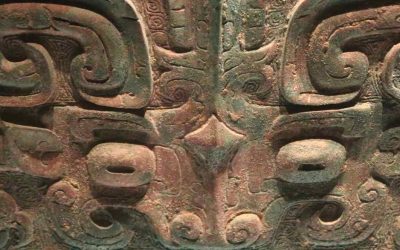Xin Ran – Sky Burial: An Epic Love Story of Tibet
In Brief: A work full of exoticism that describes some interesting customs of the Tibetan nomads, but fails to convey emotions to the reader.
Sky Burial: An Epic Love Story of Tibet is a novel set in the late 1950s. A tragic love story that takes place in the scene of the fighting between Chinese and Tibetans in the eastern region of Tibet, in the so-called Khampa War, as the Khampas, or Eastern Tibetans, were the protagonists of the fighting.
The story unfolds through the interview that the writer, a radio host of a famous program, conducts with an old woman, at first sight marginalized in today’s society. The story is reconstructed years later on the basis of the notes taken during the interview and possibly enriched by some trips to Tibet. This first process already departs from the innocence that could be foreseen initially by introducing in the narration some anachronisms and set phrases, which are in no way credible in the mouth of a person who presents herself as returning from decades of residence in Tibet.
This initial inadequacy in the adaptation of language to the different characters that appear in the novel, who belong to different social backgrounds, cultural worlds and even political periods characterized by well-defined languages, is maintained throughout the work, with the result that the reader is prevented from identifying with the characters and forced to read the work as the mere story of a woman who has experienced portentous adventures. For the novel is the story of a woman who, faced with the vague news that her newly wedded husband has been killed in an engagement during «The Khampas War», leaves her native Suzhou to enlist in a military unit bound for the same area. During her short military life, hardships and fighting are continuous. Before her unit is decimated, she escapes disgrace with the help of a Tibetan woman she has previously helped, spending dozens of years living with a family of Tibetan nomads, completely cut off from all outside communication.
This opportunity to describe the life and culture of the Tibetan nomads is used with little elegance, and the fragments of what might be called anthropological information are incorporated into the overall narrative with little fortune, maintaining their informative role but little literary meaning. The protagonist’s long stay with the Tibetan family is likewise dispatched in a not very elaborate way, because after a few brushstrokes that help to characterize the members of the family and a correct description of some of the events that break the monotony of their lives, the months turn into years and these into dozens of years, without the reader hardly noticing it, so that when the narrator assures that thirty years have passed, the reader thinks that he has missed something.
This estrangement of the main characters shown by the author is reflected in the reader, who does not end up being an accomplice in the moments of greatest drama, but rather contemplates them with the distant gaze of someone who is oblivious to it all. It is a pity that an original and interesting plot is wasted along the pages, but nevertheless it is necessary to emphasize the value of the story and the interest in the description of situations and environments rarely described in literature. That means that the shortcomings in the narrative level are sometimes compensated, so the book will surely manage to keep the interest of readers who, when choosing a novel by a Chinese author, already expect a ration of exoticism in its pages.
Cite this article as: Ceinos-Arcones, Pedro, «The first description of the Religion of the Yi,» in Ethnic China, 21 marzo 2021, https://ethnic-china.com/the-first-description-of-the-religion-of-the-yi/.
Last posts
Buddhist Monks in Medieval China
Buddhist Monks in Medieval China That is the subject of John Kieschnick's book. The book analyzes the contents of the three collections of biographies of monks that became famous in medieval China, through them he tries to give us first a characterization of the...
Manual of Taoist Architecture
Manual of Taoist Architecture There are some illustrated books that produce in the reader a contradictory feeling, because the images that explain what the text is about are sometimes accompanied by an exposition of ideas that is too superficial. Therefore the reader...
How the presence of goddesses paves the way for female power
How the presence of goddesses paved the way for female power One of the theses of my book Matriarchy in China: mothers, goddesses, queens and shamans (Madrid, 2011) was to assert that the presence of goddesses with prominent roles in a culture could signal the past or...
Spirits possession in ancient China
Spirits possession in ancient China. I have just finished reading The Ancestors Are Drunk, a book by Jordan Paper. Perhaps one of the best books on the religion of China that can be found, because with every chapter, almost with every page, he opens new windows,...
Yan Lianke. The Four Books
Yan Lianke. The Four Books The Four Books refers to the famous Four Books of Confucius, the basis of Chinese thought for two millennia. And like those of Confucius, these by Yan Lianke could become a new model for understanding the glories and miseries of human...
What if China’s history had been precipitated by the eruption of a volcano in Greece?
What if China's history had been precipitated by the eruption of a volcano in Greece? Although in present times there is greater concern about global phenomena, it is not that they did not happen before. Some natural catastrophes in the past were so violent that they...










